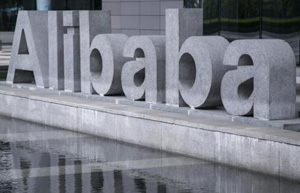As the nation's leadership courts private investment in State-owned enterprises, it is looking homeward, reports Bloomberg.
When China last opened up State-owned enterprises to outsiders a decade ago, it created a multibillion-dollar windfall for foreign investors including Goldman Sachs Group Inc. This time around, the government is making sure domestic buyers also get opportunities.
Foreign firms such as KKR & Co and Ontario Teachers' Pension Plan were invited to bid earlier this year when China Petroleum & Chemical Corp sold a $17.5 billion stake in its retail unit. They ended up getting squeezed out in an auction that gave 24 of the 25 stakes to mainland or Hong Kong companies. In August, only one foreign private-equity firm-New York-based Warburg Pincus LLC-got a piece of a sale by China Huarong Asset Management Co, and that was with the help of a former US Treasury secretary.
The overhaul of State-owned enterprises underscores China's ambition to build a homegrown investor base with little need for foreign cash-even if it means steering State assets to a Chinese bidder offering less. China Petroleum sold the stake at a price 20 percent below expectations, according to a Sept 16 research note from Sanford C Bernstein & Co.
"The government is not going to let foreign investors have a strong say in the decision-making," Ying Wang, a director at Fitch Ratings in Shanghai, said by telephone. "They don't want to give away control to outside investors."
Chinese State-owned enterprises have announced at least $48 billion worth of restructuring deals in the past six months, data compiled by Bloomberg show, as the government seeks to boost profitability and make them more competitive through market discipline. The nation's leadership has pledged to encourage private investment in industries previously dominated by such State-owned enterprises such as oil and power companies.
That private investment does not necessarily include foreigners. China Petroleum and Chemical Corp, known as Sinopec, said it prioritized domestic investors, or those who "bring benefits to the general public of China", when it announced the sale on Sept 14.
Potential foreign buyers were discouraged when told investors were unlikely to be offered a board seat and a say in decision-making at the unit, which runs more than 30,000 fuel stations, people familiar with the matter said. They were also confined to negotiating with Sinopec's advisers while some Chinese investors were able to speak directly with Sinopec's management, the people said.
The final price for the stake was $4.9 billion less than forecast, according to Bernstein's report. Sinopec shares tumbled 8.1 percent, the biggest drop in 15 months, after it announced the sale.
"State-owned assets have often been sold at a huge discount to their true value," said Chen Lin, a finance professor at the University of Hong Kong.
Anita Davis, a spokeswoman for KKR, and Deborah Allan, a spokeswoman for Ontario Teachers, declined to comment.
The only foreign investor to win a stake in the business, which is slated to list next year, was RRJ Capital Ltd, an Asia-focused private equity fund run by former Goldman Sachs partner Richard Ong.
Sinopec, Asia's largest refiner, defends its policy on grounds that domestic buyers share a cultural affinity with company executives and the government wants control to remain in Chinese hands, a person familiar with the deliberations said. Haier Electronics Group Co, a maker of washing machines, and a fund backed by Shenzhen-based Internet company Tencent Holdings Ltd were among the investors.
|
 |
 |
| Two private banks get nod | Private firms more diligent in CSR activities |
